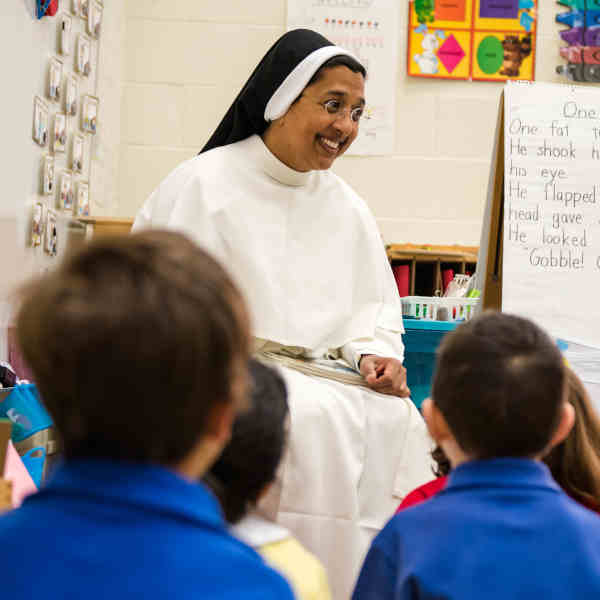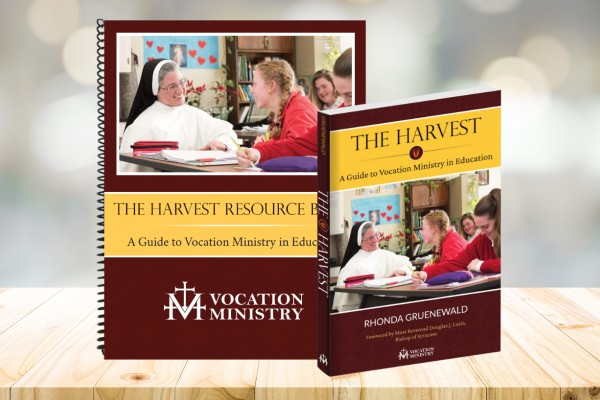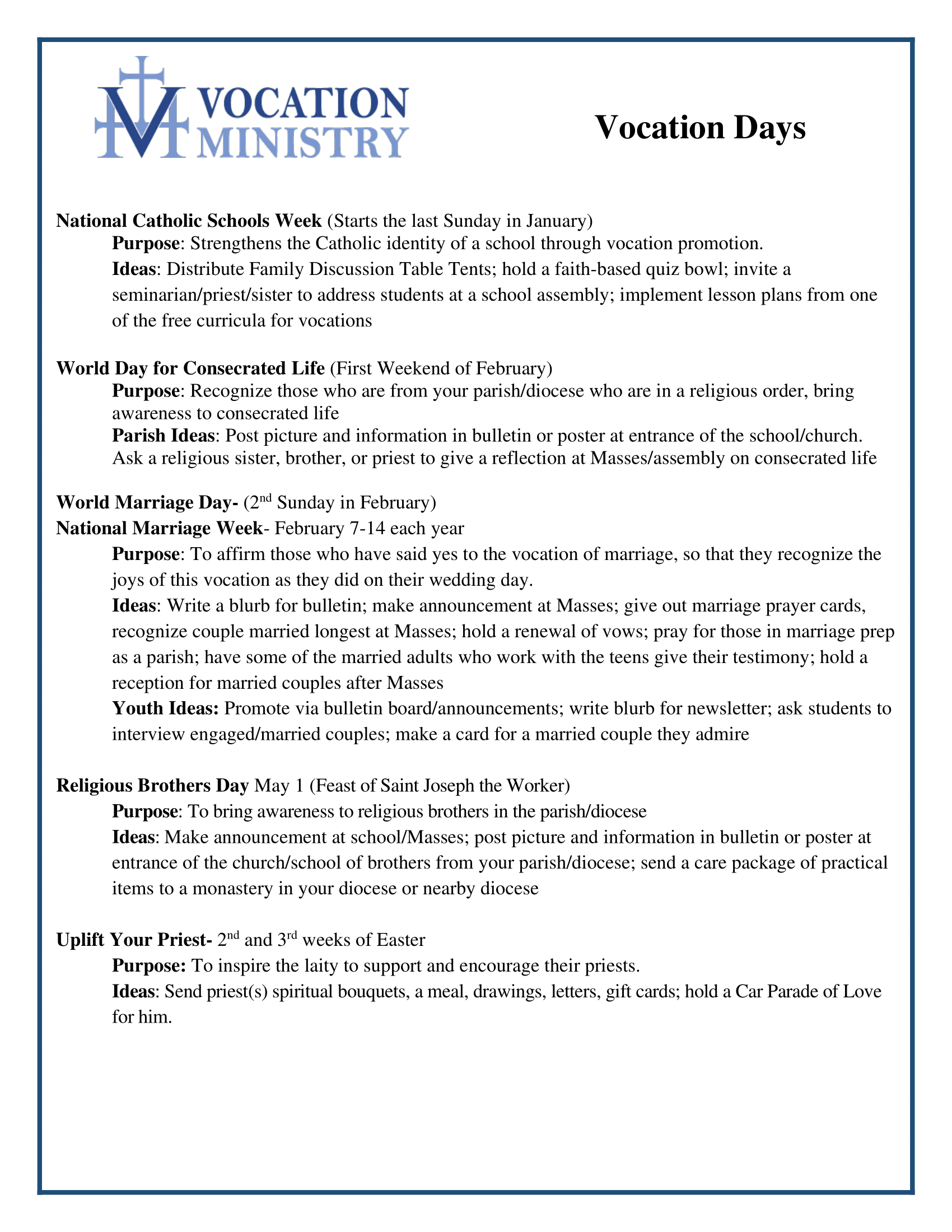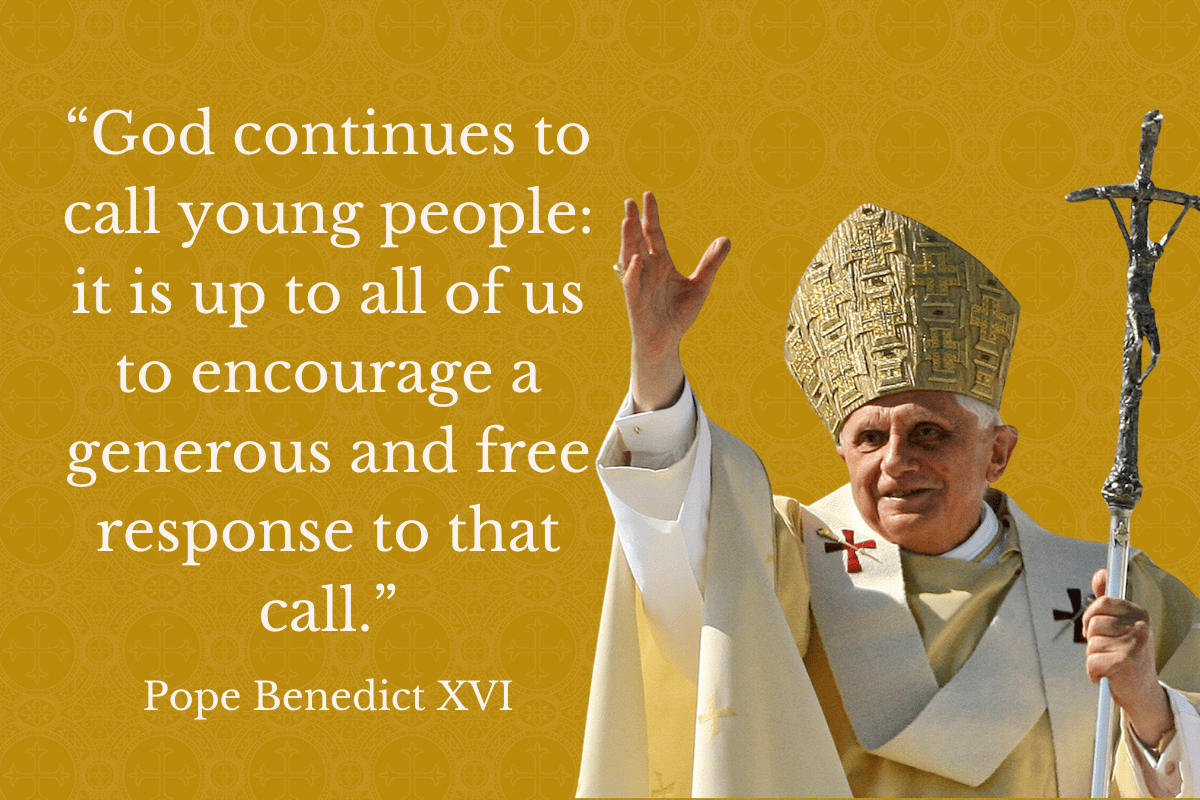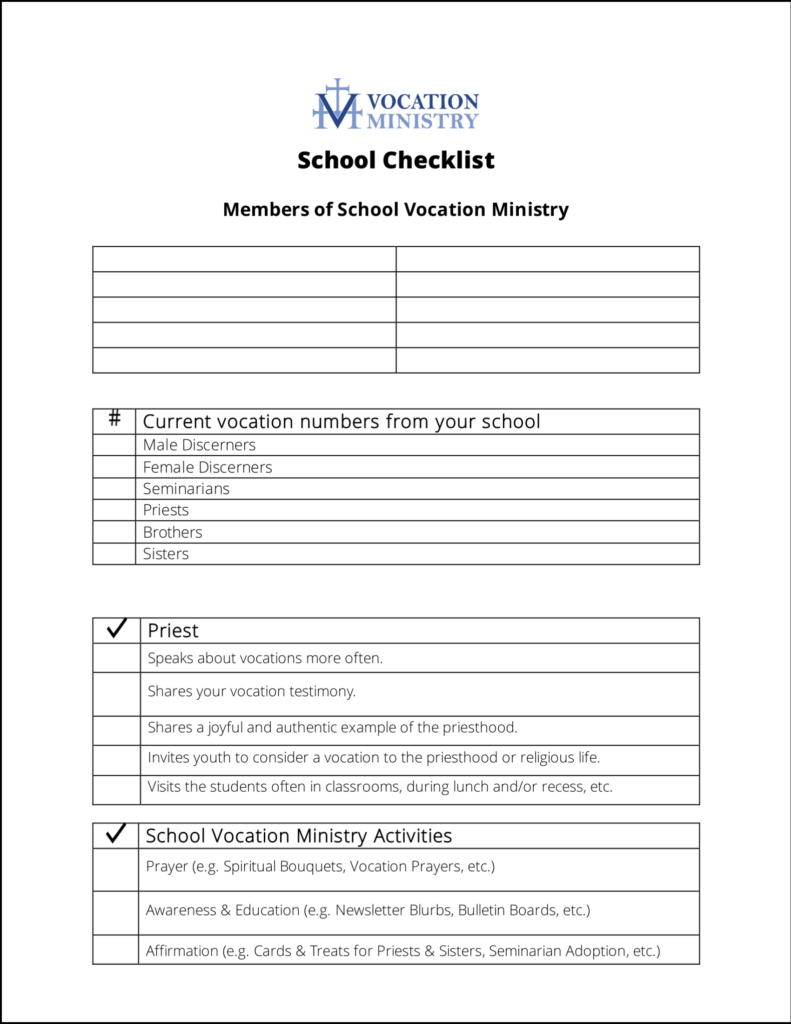Why in the educational setting?
The overall mission of any Catholic educator, no matter the setting, is to help students fulfill their primary vocation: to grow in holiness. Within this broad context, when a school or educator decides to promote vocations, it has the narrower task of helping youth discern God’s will for their lives. While working towards this goal, educators need only create an environment where young people can hear and answer God’s call. The Holy Spirit will do the rest.
Studies continually show that about 70% of the newly ordained first thought about becoming a priest before 18 years of age. Teens, many of whom are at least open to the idea of a priestly or religious vocation, need better education, inspiration, and support so that their vocation can mature. This takes “planting seeds” through education and invitation. When children learn in school about discerning God’s will, vocations flourish.
Schools
If you’re a principal or your school has a vocation ministry, use this school checklist to assess the level of vocation promotion happening in your environment.
Teachers
If you are new to creating a culture of vocations in your classroom, click on Phase I below.
Endorsements for The Harvest
“The Harvest tells a compelling story of why vocations ministry is crucial in an educational setting. Better still, it offers a clear blueprint and accessible, step-by-step directions for implementation in your educational setting.”
– Jessica Hickey, Director of Catechesis, St. Boniface
“This book is an absolute GIFT! There’s nothing teachers love more than concrete examples they can easily implement in the classroom, and The Harvest is chock full of ready-to-use activities and lessons!”
–Meris Bridger, Catholic Middle School Teacher
“The Harvest provides a prescriptive roadmap to navigate the paths towards increased vocations in our diocese – and it will for your diocese as well. I highly recommend this fantastic resource for your Catholic schools and diocese.”
–William Crist- Superintendent of Schools, Roman Catholic Diocese of Syracuse
“This resource will be a tremendous blessing for teachers, religious education instructors, and parents as we accompany young people and help them listen to the gentle voice of the Holy Spirit, who is calling each one to be a disciple of Christ.”
–Sister John Dominic Rasmussen, O.P. Director of Disciple of Christ, Education in Virtue
“With an abundance of practical strategies for schools to implement, Rhonda has beautifully composed a much-needed handbook for our Church. The Harvest should be in the hands of every Catholic school pastor and principal!”
–Kyle M. Pietrantonio, Executive Director of Duc In Altum Schools Collaborative
“To know that the educators of a diocese have come to embrace enthusiastically “the core mission of bringing intentionality and concrete opportunities for vocation discernment” into the educational endeavor through this book gives renewed impetus to the efforts to call forth harvesters.”
–Most Reverend Douglas J. Lucia, Bishop of Syracuse
